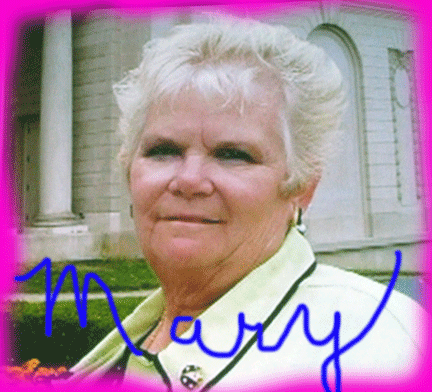
I have an Op Ed remembrance of my friend LA County Supervising Deputy Probation Officer Mary Ridgway in Sunday’s LA Times.
If you read it, I think you’ll find she is more than worth your attention. Here’s a chunk of the essay to get you started:
**********************************************************************************************************
Mary Ridgway taught me to shoot.
She was a county juvenile probation officer working the East Los Angeles gang unit. I was a gun phobic. “It’ll get you over it,” she said. She was right. Blasting away for a couple of hours with a 9mm blew me through my fears handily.
Ridgway did whatever she thought would work.
When she died of fast-moving liver cancer early on the morning of Feb. 21, the young men and women, now grown, whose lives Mary Ridgway had changed started calling to express their shock and grief. “I’d be dead if it weren’t for Ridgway,” many said. Even the hard cases.
“She was absolutely the most significant presence in the county in terms of gangs and the juvenile justice system,” Deputy City Atty. Peter Shutan told me last week. “When it came to gangs, she was the one we all went to for guidance. She talked to officers about how to be a constructive presence. Even during a raid.”
I first got to know Ridgway in the early 1990s, when I had just started reporting about gangs. Every Friday at 5 p.m. she held a meeting in the cafeteria of the Dolores Mission School, where 25 of the 70 or so adolescent probationers then in her charge were required to show their faces. The kids, nearly all of them gangsters, sat at Formica-topped tables waiting for her to call their names. One at a time, she would signal them over to a corner, where they’d report to her how they’d been doing during the week. Had they missed school? Days on the job? At the end of each conference, Ridgway would counsel, encourage, admonish, cajole, inspire and lecture the kid as to how he or she might get on track and grab for the good life she insisted they could have.
Despite her empathy for her charges, Ridgway was tough. She incarcerated kids without blinking whenever she deemed it necessary. At times, bleeding hearts like me thought she was too quick to “violate” this or that homeboy — violate being law enforcement jargon for sending kids to Eastlake Juvenile Hall or a county probation camp if they transgressed the terms of their probation.
“When she locked me up, I usually needed it,” one of her long-ago probationers told me on the phone. He began to cry and repeated the familiar mantra: “I’d probably be dead if it weren’t for Ridgway.”
If she did violate a probationer, she also showed up in court for the kid, whether it was required or not. She sat at the front, where the young man or woman would be sure to see her. “Often she would be the only one who did show up,” said John Tuchek, one of her partners on the Eastside gang unit. “There would be no family. Nobody. But she wanted her kids to know that somebody was there for them.”
After they were parceled out to juvenile hall or to camp, Ridgway would visit them. When a kid got out, she was there as well — to take him or her golfing, to an art museum, or to try to smooth things with a drug-addicted mother or, in one case, to take a probationer’s a smart little sister, who was beginning to slide in a worrisome direction, shopping for a desperately wanted prom dress.
She once talked me into driving an angry homeboy to LAX, where I put him on a plane to stay with relatives in Texas who were not overjoyed to see him. He had been targeted by other gangs, and she feared he would not live out the weekend. He called me collect from prison after hearing of her death. “I guess you could say she saved my life,” he said.
Because she accorded kids respect — she tried never to handcuff them when she made an arrest — young lawbreakers (and their sisters and brothers and mothers) often told Ridgway things they told no one else, making her an unparalleled repository of street intelligence. “Other cops thought I had the greatest informants,” said an officer who worked on one of the LAPD’s since-disbanded anti-gang CRASH units. “The truth was, I just had Ridgway.”
A blond ex-sorority girl from UCLA, Ridgway wanted to be an FBI agent, but she came of age in the 1960s, when J. Edgar Hoover still excluded women and minorities. So after graduation, she taught for a year in South L.A., then got a job in juvenile probation in 1966. She landed in East L.A. in 1987 and stayed for the next 32 years.
Ridgway was by no means perfect. Her desk was a mess of staggering proportions. She never wore a seat belt because it might crease her linen or silk dresses.
In addition to the kids in her charge, she loved jazz, her two nieces, green Corvettes and good jewelry. The latter she regularly misplaced at inopportune moments, most famously on an early morning probation raid in the mid-1990s. The team of Kevlar-clad cops had finished searching the house in question when Ridgway discovered the absence of her favorite jade brooch. Convinced she’d lost it during the raid, she persuaded the team to go back in and search the house again. Without protest, the heavily armed, highly trained police officers dutifully turned things upside down to locate a pale green pin she later found at home.
Just to be clear: Ridgway was law enforcement, not a social worker. She had her limits. Certain kids, she decided, were beyond saving. We disagreed on several such cases. Some of those young men made it. One is serving 126 years in Pelican Bay State Prison…..
********************************************************************************************************
You’ll find the rest here.


Thank you Ms. Fremon. Mary was one proud member of probation profession, which is more than a job. I mourned the passing of one of our hero in this inopportune time. However, she was an enlightening presence around her. She once was skeptical of this Korean-American, who speaks Spanish, to work in East Los Angeles Task Force under her. I am grateful that she gave me the opportunity to serve under her and prove myself for nearly two years until the program was shut down. I now work in Southeast Los Angeles County area as an adult gang case manager. Although, she will be well remembered by those whose lives were touched by her, I feel that there had been lack of recognitions from our civic leaders and officials. i.e. I found only an adjournement motion at County Board of Supervisor in her memory. I have not seen any from City of L.A. where she had the most impact as you have mentioned. I think she deserves at least a memorial resolution or more even renaming of East Los Angeles Probation office in honor of her, so that we can have more of compassionate and dedicated probation officers and law enforcement officers in this community in memory of her legacy.
Thanks for this, Celeste. We need many Mary-s like her, don’t we?
I remember always seeing Mary in the community being active. She is the last of a group of people who actually cared about the kids and was tough on them knowing it was for their good. Too bad there’s only a handful I can count now that really work with the kids and gang members instead of making excuses for them and coddling them. May she rest in peace.